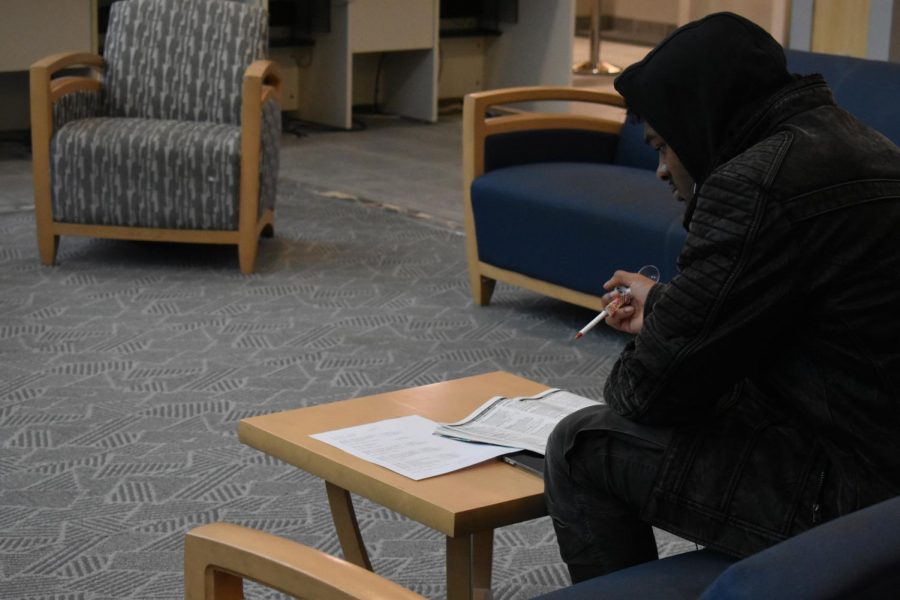State funds available for tuition
Students who attend one of Maryland’s 16 community colleges can apply for a new state scholarship by meeting specific academic and income requirements.
January 23, 2019
AACC students can apply for the Maryland Promise Scholarship later this semester.
The Maryland Community College Promise Scholarship program will allow some in-state students to receive tuition assistance of up to $5,000 a year starting in the 2019-2020 academic year.
The Promise Scholarship is a last-dollar scholarship, which means the state will not award money to students until they have exhausted any federal financial aid they qualify for.
Shanna Kibler, assistant director of financial aid, said students must fill out the FAFSA—Free Application for Federal Student Aid—form before they can apply for the Promise Scholarship.
“We’re encouraging students to do that by March 1,” Kibler said.
Students who are not U.S citizens or permanent residents might have to fill out an alternative form, Kibler said.
After students use any federal aid they qualify for—like a scholarship or a Pell Grant—the Promise Scholarship will go toward their tuition, Kibler said. Students have to earn a high school GPA of at least 2.3 to qualify for the Promise Scholarship.
Students who have been out of high school for more than two years are not eligible for the scholarship.
Only community college students who complete 12 credits per semester can recieve the scholarship.
Household income makes a difference for students when they apply for the state funds.
Students who are married or live in a two-parent household with an annual income of less than $150,000 a year may qualify, while those in single-parent homes have a lower threshold: $100,000 a year. Unmarried students who are independent can qualify if they earn less than $100,000.
Dan Baum, executive director of strategic communications, said the Promise Scholarship is not a first-come, first-serve deal.
The state calculates a student’s need partly on how much it expects the family can pay. Those with expected family contributions of $5,000, for example, will qualify before those whose parents can pay $10,000, Baum said. “If someone else’s [expected family contribution] is $2,000, then they are ahead of you in the queue.”
The state has not divided the $15 million Promise Scholarship evenly among Maryland’s 16 public community colleges. The money will go to the neediest students, regardless of how many attend each school.
Lance Partridge, a second-year nursing student, said he likes what the Promise Scholarship has to offer.
“I think it will be good for lower-income families,” Partridge said. “It goes along with financial aid, too, so it’s going to cover a lot of potential debt. It gives people an extra incentive to go to college.”
Madison Likens, a second-year psychology student, said the Promise Scholarship benefits students who rely on scholarships and government aid to get through college. “Speaking as an independent student, it can feel really rough sometimes when you feel like you have exhausted all your options. … This scholarship is one of the best ones that I’ve heard of so far.”












